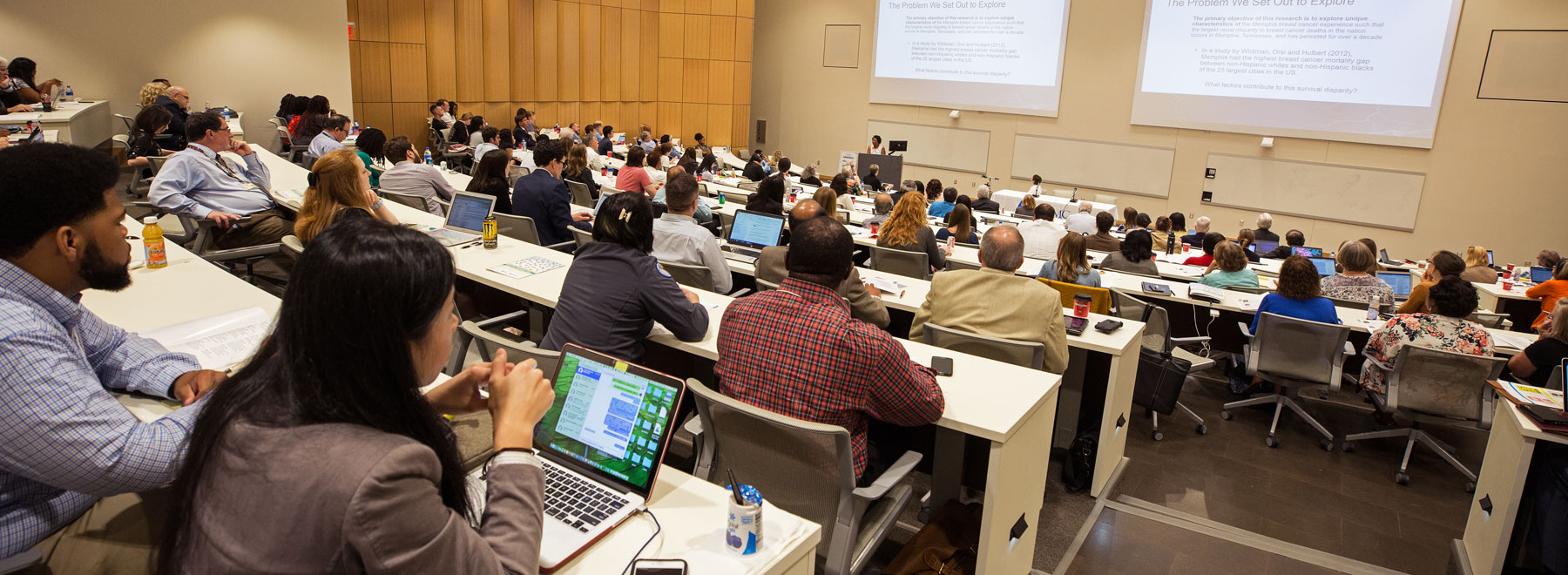Researchers gather to explore solutions to Delta health disparities
About 4.4 million acres of alluvial floodplains make up “The Most Southern Place on Earth,” the Mississippi Delta. Shared by Louisiana and Arkansas and reaching north to Memphis, Tennessee, the area is also known for its health disparities.
Three of the South’s top academic medical centers – Tulane University, University of Mississippi Medical Center and University of Tennessee Health Science Center – came together hoping to translate collaborative research into clinical solutions to eliminate health disparities in the Delta region.
UMMC on Thursday, July 19, hosted the inaugural Delta Clinical and Translational Science Health Disparities Conference at the Jackson, Mississippi campus. Close to 200 attendees took part.
Dr. Richard Summers, associate vice chancellor for research at UMMC, said the concept of the meeting arose from a conversation between himself and Dr. Steven R. Goodman, vice chancellor for research at UTHSC.
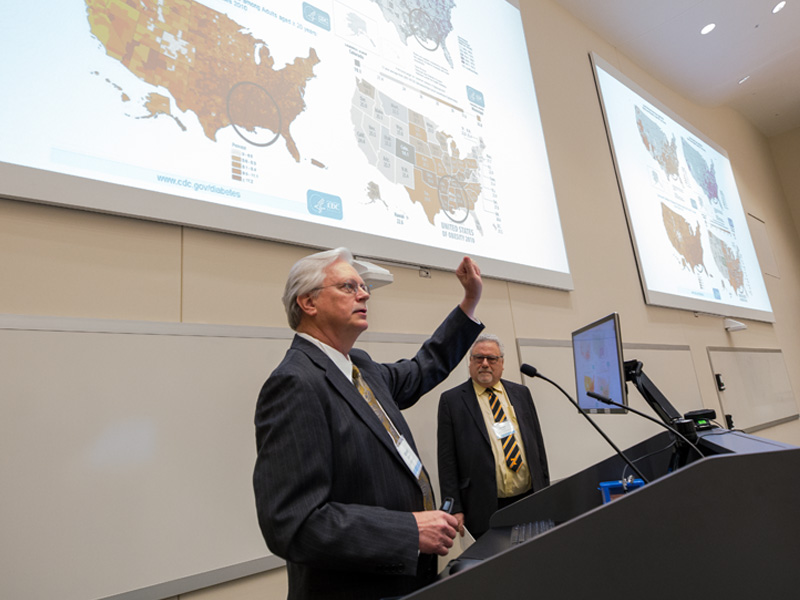
“If you draw a triangle from Memphis to Jackson across to New Orleans and back up to Memphis, it encompasses the population on either side of the Mississippi River,” Summers said. “That is the population our three states share a moral and operational responsibility for.”
Summers and Goodman wanted to build a network that would facilitate collaboration. They joined with Dr. Laura Levy, vice president for research at Tulane, and together decided that gathering everyone in the same room to share their research efforts would be the best way to get the network going.
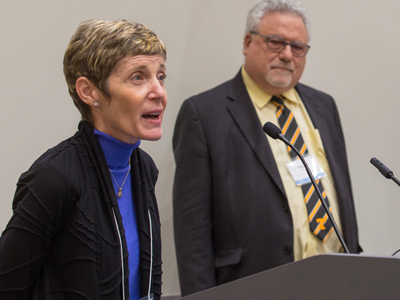
“We at Tulane are really pleased to participate in this newly formed Delta consortium,” Levy said. “We look forward to engaging new and longstanding collaborators, now partner institutions, in Tennessee and Mississippi to explore the potential of that collaboration.”
Summers pointed to heat maps from the Center for Disease Control and Prevention to show that the Delta region is ground zero for the highest numbers of heart disease, diabetes, hypertension and stroke.
“If there is any place that we should be focusing for concern about what we can do to impact the health of the people of the United States, it should be right here, right in our midst.” Summers said.
Throughout the day, researchers from each academic medical center were allowed 15 minutes to explain the basics of their research, followed by questions from the audience. The conference was organized as a way to introduce areas that might provide an opportunity for collaboration. There was also a poster session so attendees could take a deeper look at research that interested them and a networking session to allow attendees to mingle and discuss possibilities.
Topics of discussion ranged from the disparities in breast cancer mortality in Memphis and chronic obesity to the impact of race and socioeconomics on psychological outcomes in childhood cancer, hypertension and factors associated with the sexual health and risk behaviors in African American women.
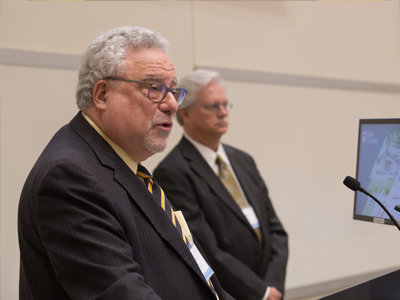
Goodman said one of the outcomes he hoped would arise from the conference is that attendees will find partners to participate in the CORNET Award in Health Disparities Research.
CORNET stands for Collaborative Research Network and was developed by UTHSC to stimulate “innovative, interdisciplinary, team-based research.” It is designed to promote collaborative research by providing seed money that could result in future external funding.
“We started CORNET Awards three years ago,” said Goodman. “The idea was to stimulate collaborations across institutions, both nationally and globally.”
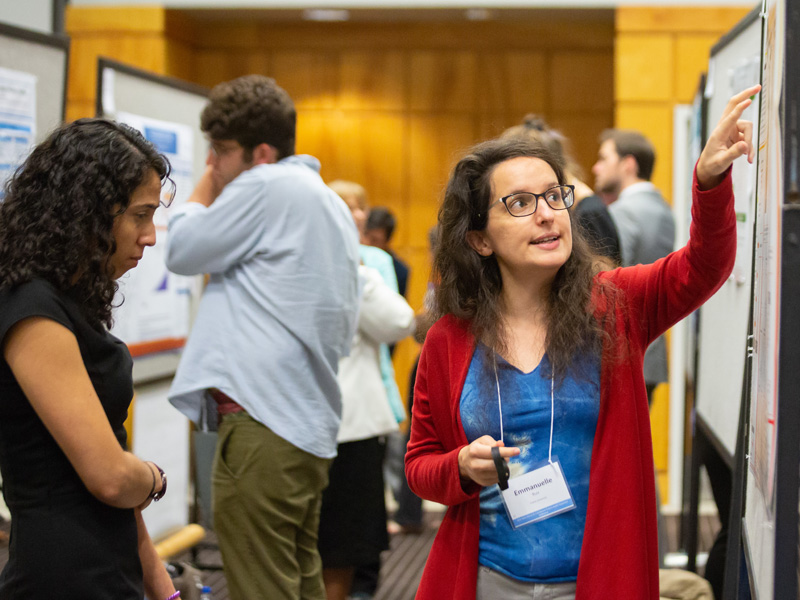
One requirement of the award is that the project must include a researcher from each of the three institutions that make up the consortium. Another is that it must be new research. The money cannot be used to bridge existing projects. Two grants of $75,000 each will be awarded after review by committee.
The consortium will also apply for the National Center for Advancing Translational Sciences’ Clinical and Translational Science Award. Dr. Gailen Marshall, R. Faser Triplett Chair of Allergy and Immunology and medical director of the Clinical Research Support Program and Clinical Research and Trials Units, will serve as the UMMC principal investigator.
“The emphasis of this award is to train the next generation of clinical and translational scientists,” Marshall said. “These young scientists are going to do the work – whether it’s clinical trials, basic science, preclinical work or outcomes research – in issues related to rural medicine and health disparities, two areas that hit UMMC’s population right between the eyes.”
Levy summed up the purpose of the conference well in her opening remarks, “We look forward to learning what we can do better together.”



